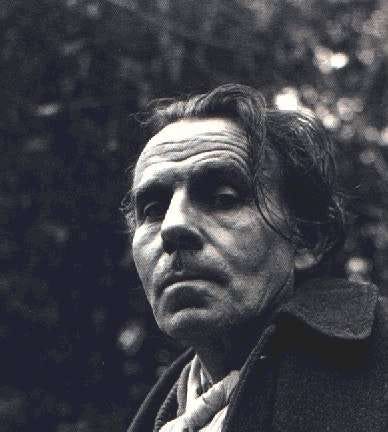Louis-Ferdinand Céline — Céline may be hard to take for some readers. His novels are full of black comedy, pessimism, existentialism, and nihilism. His best known work, and my personal favorite, Journey To The End Of The Night is the prime example of Céline’s world. To me, he was an amazing writer and his style is often brutal and honest. Not exactly a virtuous man by any stretch of the imagination (he was a rabid anti-semite and reportedly a collaborator during the Nazi occupation) but he was most definitely a gifted writer.
What influenced me most about his work was the black comedy, this humorous look at some of the most disturbing things mankind is known to do to one another. A product of the World War I generation, it’s not hard to see why pessimism and nihilism dominates his work. Some of the passages in Journey To The End Of The Night are pure gold and will often make you laugh out loud at times although his work, overall, is not for those seeking sunshine and flowers. He broke the rules of ‘literary time’, was prone to use slang, and he revolutionized modern French literature and influenced a host of other writers, Henry Miller and Charles Bukowski in particular.
His follow up, Death On The Installment Plan, follows along the same lines only this time it includes elements of fantasy, sexual escapades, illness, venereal disease, greed, and lust. Not for the faint hearted but definitely worth exploring. This was followed by a string of other inventive novels, including Guignol’s Band, which is set just after World War I, in England, where the protagonist runs small businesses and interacts with prostitutes; Conversations With Professor Y, Castle to Castle, North, London Bridge and Rigadoon, an autobiographical novel about his association with the Vichy regime in World War II era France.




